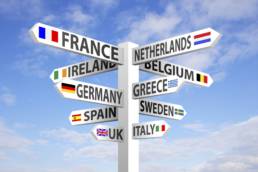For many startups in Korea looking to enter the European market, Germany has become their prime destination. As the UK has left the EU, Germany is now regarded as the top economic power in the region. They are considered the largest economy in Europe and the 4th largest globally. Therefore, entering the German market is a priority for many Korean startups looking to expand into Europe.
The Korean Innovation Center Europe (KIC Europe) has been collaborating with Berlin-based co-working space Betahaus for years to bring Korean Startups to Europe. However, entering the German market is not as easy as it seems. Below we will break down what it takes for Korean startups to succeed in Germany.
Entering the German Market
Many programs support foreign startups looking to enter the German market. K-Launchpad by Betahaus was one. They actively looked for Korean startups and businesses interested in expanding to Europe. Selected participants got to attend an online pre-program. It introduced them to the culture, partner meetings, and challenges they needed to solve in Berlin. In addition, they got invited to a 3-week intensive program in Berlin. It is unknown if the program will return, but programs like these are crucial to enter the German market. There are many challenges that businesses must deal with, which is why Korean startups can not do it alone.
Challenges to entering the German Market
All startups in Korea looking to enter the German market must register their business with the appropriate local chamber of industry and commerce. They will also need to register at the local office of business and standards and the local commercial register. Finally, they will need to register with the relevant professional trade association before they can legally do business in Germany. These are at least four registrations, so having a support system or a local partner is crucial.
The whole process could take 1-2 months. This is due to Germany’s complicated tax structure, so you will need access to a competent tax attorney specializing in foreign startups. Those startups in Korea that import or export products will also need an extensive documentation certification process that could take an additional 1-2 weeks.
KIC Europe
For many startups in Korea, KIC Europe will be their top lifeline when entering the German market. KIC Europe‘s primary purpose is to bridge innovation between the EU and South Korea. Therefore, the organization actively promotes cooperation between Korean and European Businesses. Their previous events have contributed to partnerships between governmental institutions and SMEs. Furthermore, KIC Europe has been a partner for Korea Startup Grand Challenge (or K-Startup Grand Challenge). The well-known project by NIPA promotes entrepreneurship all around Asia.
KIC Europe also has a partnership with Betahaus. Betahaus is one of the largest co-working spaces in Berlin. In addition, it has partner locations in Barcelona, Sofia, and more worldwide. Betahaus offers workspaces to create and collaborate. Furthermore, it has hosted the Betapitch Seoul 2019 to bring more Korean startups to Europe. The team at Betahaus is actively looking for more opportunities to work with the Korean Startup Ecosystem in the future.
Top Tips for Entering the German Market
- Set up a payment system that supports Elektronisches Lastschriftverfahren (ELV). It is an electronic direct debit payment system that Germans use and is supported by most German banks. Most Germans use debit cards instead of credit cards.
- Online Korean startup retailers will need to partner with a third-party payment company.
- Check that your business name is available at the Chamber of Industry and Commerce.
- A minimum deposit is required when opening up a business bank account in Germany.
- Certain types of business will need a trading permit which can be granted at the Local Trade Department (Gewerbeamt).
- Notify the Local Labour Office of the establishment of your business. This is a requirement. Once your startup is registered, your business will be given an 8-digit operating number.
Types of Startups in Korea that Should Consider Entering the German Market
(Mobility) Smart Mobility, Smart Vehicles, Enhanced User Experience
- Autonomous driving
- Passenger experience
- Solutions (Multi-modal backend and car integration)
- On-board Diagnostics(OBD2) dongle hardware/software
(Blockchain)
- The infrastructure of a hybrid solution
- Smart Contracts
- Distributed-Ledger-Technology
(IoT)
- Smart Factory
- Smart Logistics
Do not think about entering the German market solely on your own. Many startups in Korea failed to follow basic regulations and rules. This is why finding the right program is the best way to go.
Popular
Related Posts







